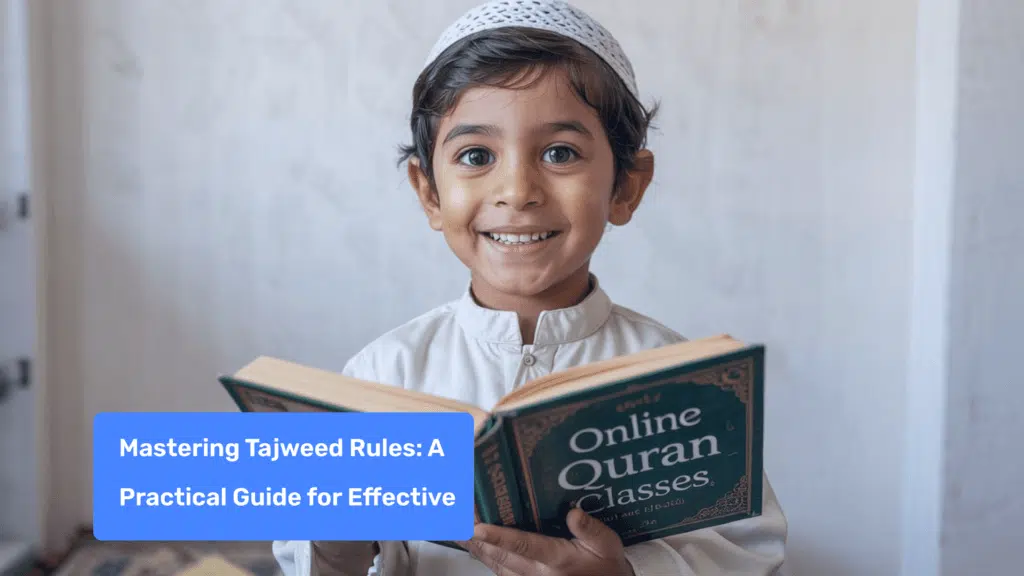The Holy Quran stands as the foundational text of Islam, offering guidance, wisdom, and spiritual nourishment to over a billion Muslims worldwide. This comprehensive guide explores the structure, themes, and insights found within the chapters of the Quran, providing readers with a deeper understanding of this sacred text and its relevance to contemporary life.
Understanding the Quran
The Quran is the holy book of Islam, believed by Muslims to be the literal word of Allah (God) as revealed to Prophet Muhammad through the angel Gabriel over a period of approximately 23 years. This divine revelation consists of 114 chapters and 6,236 verses, forming a comprehensive guide for humanity.
At its core, the Quran establishes Allah as “Rabb al-‘Alamin” (Lord of the worlds), the ultimate authority and source of truth. This concept is central to Islamic theology, emphasizing Allah’s sovereignty over all creation and His role as the sustainer and nurturer of the universe. The opening chapter, Al-Fatiha (The Opening), immediately introduces this concept with “Alhamdulillahi Rabbil ‘Alamin” (All praise is due to Allah, Lord of the worlds).
The Quran places significant emphasis on worship (‘ibadah), prayer (salah), and faith (iman) as essential components of a believer’s daily life. These practices are not merely rituals but meaningful connections between the worshipper and the Creator. As stated in the Quran (51:56): “And I did not create the jinn and mankind except to worship Me.”
For believers, the Quran is not simply a text to be recited but a living guide to be internalized and implemented. Muslims are encouraged to read the Quran and reflect on its verses to deepen their understanding of Islam. This multifaceted engagement with the text allows believers to extract wisdom and guidance applicable to their personal circumstances.
As a foundation for spiritual growth and development, the Quran offers profound insights into the nature of Allah and humanity. It addresses fundamental questions about existence, purpose, and the relationship between the Creator and creation, providing a framework for believers to navigate life’s challenges and opportunities with faith and wisdom.
Exploring the Structure and Themes of the Quran
The Quran’s organization differs significantly from other religious texts. Rather than following a chronological or strictly thematic arrangement, the Quran is divided into 114 chapters, each with its own unique focus and message. These chapters vary considerably in length, from Al-Baqarah (The Cow) with 286 verses to Al-Kawthar (Abundance) with just 3 verses.
The chapters are arranged broadly in descending order of length, with the longest chapters placed at the beginning of the Quran (with the exception of Al-Fatiha). This arrangement was established during the compilation of the Quran under the guidance of Prophet Muhammad and later standardized during the caliphate of Uthman ibn Affan.
A distinctive feature of the Quran’s structure is that each chapter, except for the ninth (At-Tawba), begins with the basmalla or tasmiah: “Bismillahir Rahmanir Rahim” (In the name of Allah, the Most Compassionate, the Most Merciful). This formula serves as a reminder that the Quran’s teachings emerge from Allah’s attributes of mercy and compassion.
The Quran explores a wide range of themes that remain relevant across time and cultures. Central among these is the nature of Allah, described through His 99 beautiful names (Al-Asma al-Husna) that reflect His divine attributes. These names appear throughout the Quran, offering believers insights into Allah’s nature and relationship with creation.
Faith (iman) and worship (ibadah) form another major theme, with the Quran frequently emphasizing the importance of belief in Allah, His angels, His books, His messengers, the Last Day, and divine decree. The five pillars of Islam – the declaration of faith (shahada), prayer (salah), charity (zakat), fasting (sawm), and pilgrimage (hajj) – are outlined as practical manifestations of this faith.
The Quran also addresses the consequences of righteous and evil actions, introducing concepts of paradise (jannah) and hellfire (jahannam) as ultimate destinations based on one’s deeds and faith. These descriptions serve both as motivation for righteous conduct and deterrence from sinful behavior.
A significant portion of the Quran is dedicated to narratives about prophets and historical events. Stories of Adam, Noah, Abraham, Moses, Jesus, and other prophets illustrate timeless moral lessons and demonstrate the consistent message of monotheism throughout human history. As Allah states in the Quran (21:25): “And We sent not before you any messenger except that We revealed to him that, ‘There is no deity except Me, so worship Me.'”
Reflect on the Quran with Mustafa Khattab’s “The Clear”
For those seeking to engage with the Quran in English, Mustafa Khattab’s translation, “The Clear Quran,” offers an accessible and nuanced approach to understanding the text’s message. This modern translation strives to balance faithfulness to the original Arabic with clarity and readability in English.
This translation provides readers with a transparent window into the Quran’s teachings, making it an excellent resource for both newcomers to Islamic scripture and longtime students seeking fresh insights. Khattab’s work avoids archaic language and obscure terminology, instead opting for clear, contemporary English that preserves the meaning and spirit of the original text.
What distinguishes this translation is its commitment to contextualizing verses that might otherwise be misunderstood or misinterpreted. It provides brief explanatory notes within the text, helping readers grasp cultural, historical, and linguistic nuances that might not be immediately apparent in translation.
The translation is accompanied by thoughtful commentary that illuminates the context of revelation for various verses, providing readers with a more comprehensive understanding of how these teachings applied in their original setting and how they remain relevant today. This approach helps bridge the gap between the 7th-century Arabian context and contemporary global society.
By engaging with this translation, believers can develop a deeper appreciation for the Quran’s literary beauty, ethical teachings, and spiritual wisdom. The translation serves as a companion for study and reflection, inviting readers to explore the depths of Allah’s word and its applicability to their daily lives.
Applying Quranic Teachings in Daily Life
The ultimate purpose of the Quran is not merely intellectual understanding but practical application. Its teachings offer comprehensive guidance on how to live a virtuous and meaningful life in accordance with Allah’s will.
The Quran emphasizes ethical principles that transcend time and culture, including honesty, compassion, justice, and respect for human dignity. As stated in the Quran (16:90): “Indeed, Allah orders justice and good conduct and giving to relatives and forbids immorality and bad conduct and oppression. He admonishes you that perhaps you will be reminded.”
These principles are not abstract ideals but practical guidelines for navigating daily interactions and decisions. The Quran encourages believers to demonstrate integrity in business dealings, compassion toward the vulnerable, fairness in judgment, and kindness in all relationships.
Central to Quranic teaching is the importance of prayer (salah), charity (zakat), and generosity toward others. These practices serve both as acts of worship and as means of building a just and compassionate society. The regular practice of prayer reminds believers of their relationship with Allah and their moral responsibilities, while charity addresses social inequalities and fosters community cohesion.
The Quran’s message offers comfort and guidance during times of hardship and challenge. It reminds believers that difficulties are tests of faith and opportunities for spiritual growth. As mentioned in the Quran (2:155-156): “And We will surely test you with something of fear and hunger and a loss of wealth and lives and fruits, but give good tidings to the patient, who, when disaster strikes them, say, ‘Indeed we belong to Allah, and indeed to Him we will return.'”
Perhaps most significantly, the Quran’s message is one of mercy and forgiveness, offering believers a path toward spiritual growth and redemption regardless of past mistakes. The Quran repeatedly emphasizes Allah’s willingness to forgive those who sincerely repent and strive to improve, providing hope and motivation for continuous self-improvement.
Understanding Translations of the Quran
It’s important to recognize that any translation of the Quran represents an interpretation of the original Arabic text. Many scholars maintain that the Quran in its true form exists only in Arabic, with translations providing approximations of its meaning rather than perfect equivalents.
Multiple translations exist, each with its own approach and emphasis. Some translations prioritize literal accuracy, while others focus on conveying the spirit and intent of the text in natural, accessible language. Some translations include extensive commentary, while others present only the translated text.
The diversity of translations reflects the richness and depth of the Quran itself. Serious students of the Quran often consult multiple translations to gain a more comprehensive understanding of the text. This comparative approach helps readers appreciate the nuances and complexities of the original Arabic.
Modern translations continue to evolve, incorporating contemporary scholarship and addressing the needs of current readers. Digital platforms have made these translations more accessible than ever, allowing believers around the world to engage with the Quran in their native languages.
For non-Arabic speakers, translations serve as essential bridges to the Quran’s wisdom. While acknowledging the limitations of translation, Muslims around the world express gratitude for the scholars who have dedicated their lives to making the Quran’s message accessible across linguistic boundaries.
Conclusion
The Quran remains a living text, offering guidance and inspiration to believers across diverse cultures and circumstances. Its 114 chapters contain wisdom that addresses both the spiritual and practical dimensions of human existence, inviting readers to develop a deeper relationship with their Creator and a more compassionate approach to their fellow creatures.
Through careful study, reflection, and application of Quranic teachings, believers can navigate life’s complexities with faith, wisdom, and moral clarity. The Quran’s message transcends time and place, speaking to the universal human search for meaning, purpose, and connection with the divine.
As we continue to engage with this sacred text in the twenty-first century, translations provide valuable tools for understanding and implementing its timeless wisdom. The Quran’s invitation remains open to all who seek guidance: to read and reflect on divine revelation with open hearts and minds.















